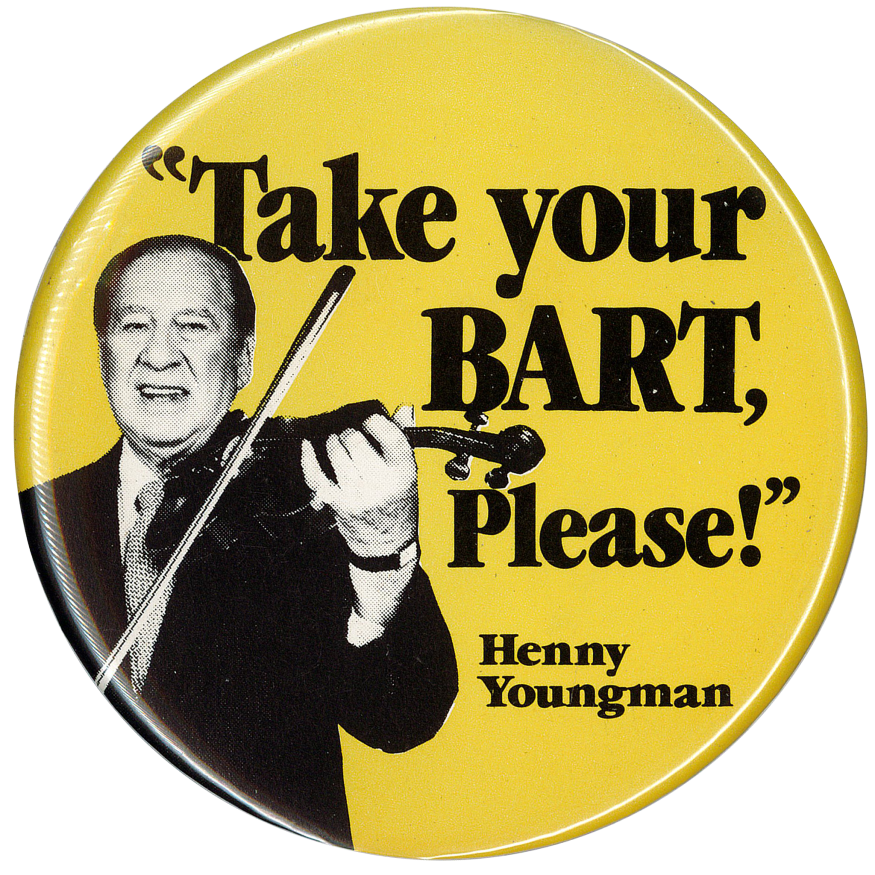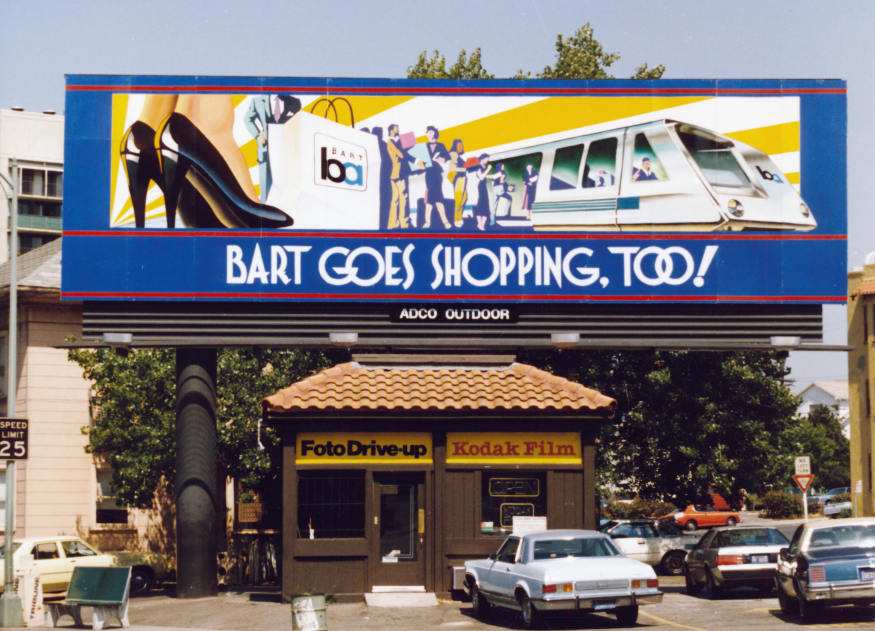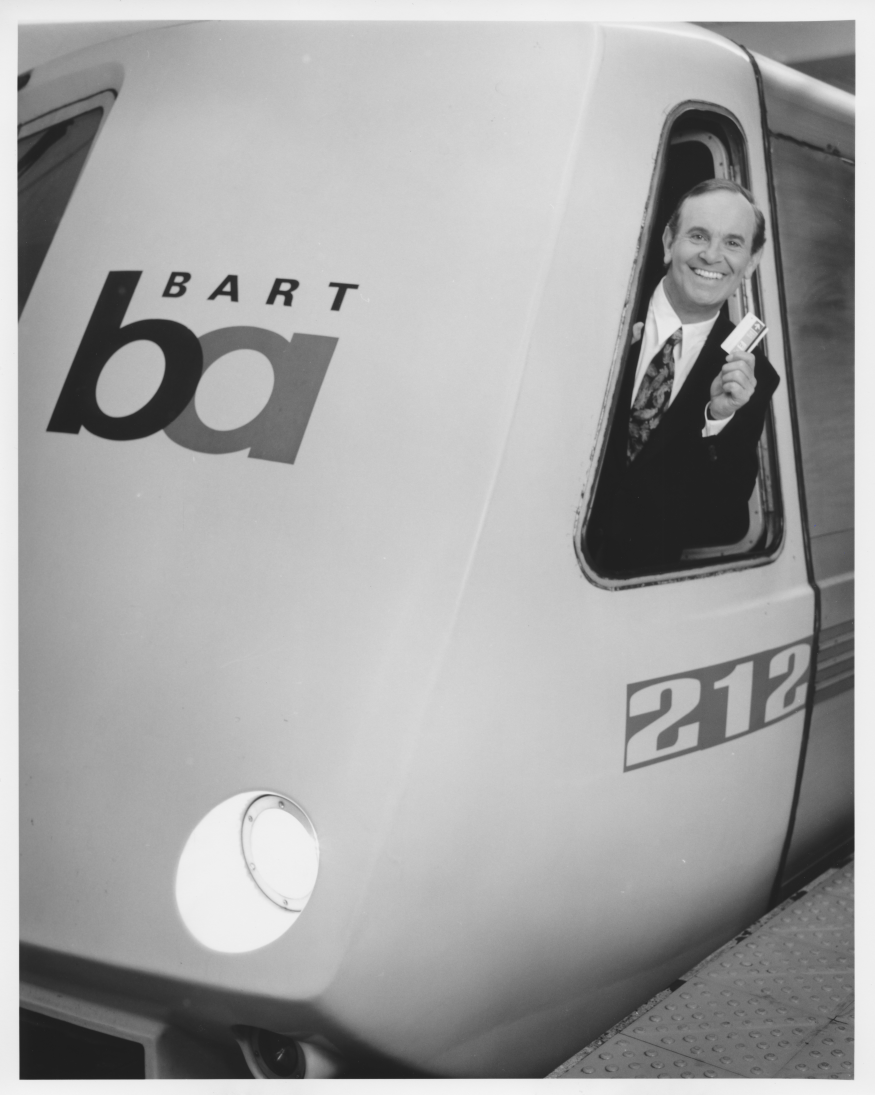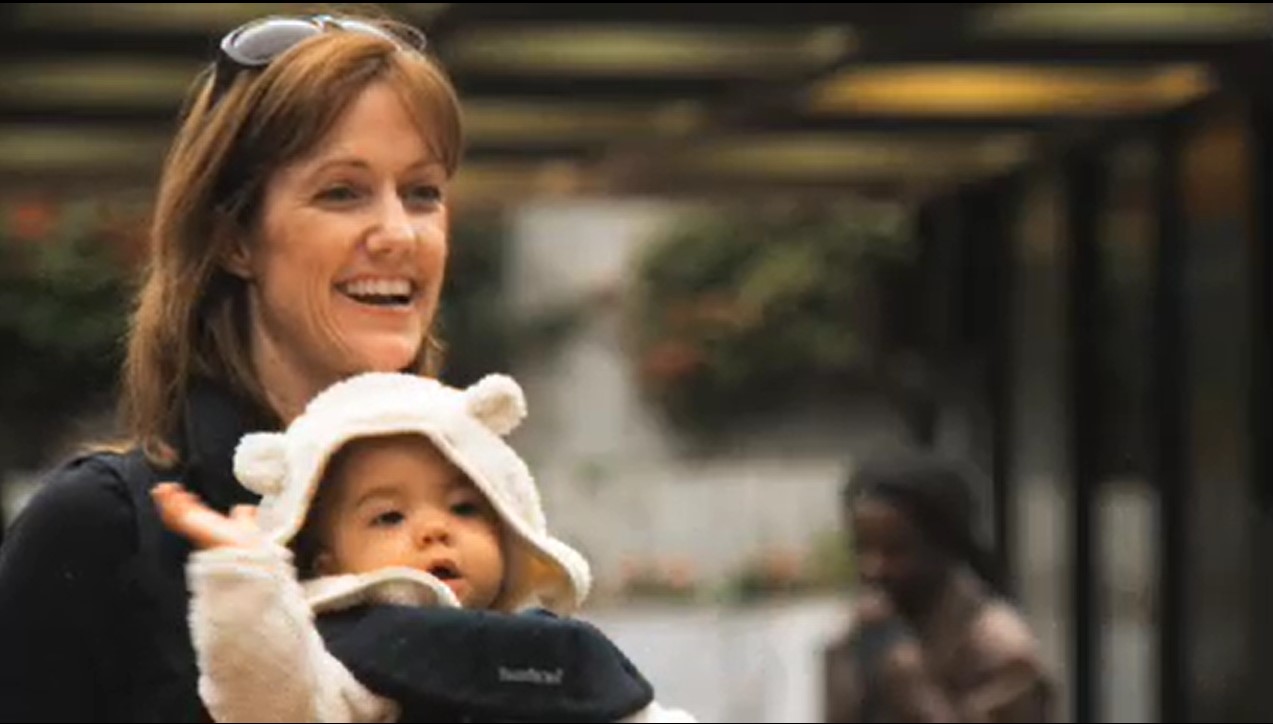"Take Your BART, Please!"
If memes existed in the late 1980s, comedian Henny Youngman would undoubtedly have become one with these four words – a take on his signature phrase, “Take my wife, please.”
The commercials aired on every major news and radio station in the Bay Area – not in the ad space necessarily, but as the story, according to former BART Director of Public Affairs Michael Healy. The ads, along with midday fare reductions at the time, are likely responsible for increasing BART’s daily ridership by about 4,000 people in the late 1980s.
“We got a million dollars of publicity from that ad,” Healy said.
Healy, who writes about the tale of Henny and BART in his book, “BART: The Dramatic History of the Bay Area Rapid Transit System,” ran the BART marketing department for about twenty years. He said he used advertisements to “show the human side of BART.”

“BART was seen as this sort of high-tech, very rigid, Space Age transit system when it first came on the scene,” Healy said. “What I wanted to do was warm it up. That was really my goal and part of my marketing strategy.”
As for Henny, Healy received some initial pushback. When he announced the comic’s hiring in a staff meeting with the General Manager, “Everyone looked at me like I was crazy.” The Head of Planning asked if the targeted demographic was “the geriatric crowd,” Healy recalled.
“I said Henny was universal, and as it turned out, I was right,” he said.
Through the years, BART has run dozens of ads across newspapers, digital sites, billboards, and the like. Some of them are funny and absurdist. Some rely on riders’ real voices and opinions. And many have become iconic pieces of Bay Area pop culture history.
In one series of ads, created by an agency in the early 1970s, provocative text meets black-and-white image. “Ian Cheshire quit his job on BART,” one reads. “Fran Sheath left her husband on BART,” says another. The advertisements speak to a different time and era and were intended to inspire people of all stripes and backgrounds to give BART a try. In the 70s after all, mass rail transit at this scale was an entirely new concept for the Bay Area. People had to get used to the idea of BART – and feel compelled to give up their private automobile for it.

The stories behind the ads are as fascinating as their content. Before Henny Youngman became inextricably linked to BART and its image, Healy came up with the “BART goes shopping, too!” campaign – an iconic image showing passengers loaded with shopping bags and boxes waiting to get on a train.
The idea for the ad came from a series of on-the-street interviews with real riders. One interviewed woman said, in Healy’s words, “I BART to go shopping.” A lightbulb went off in Healy’s brain.

“We turned BART into a verb,” he said, revealing the origins of the popular Bay Area colloquialism, “I BARTed.”
Plenty of celebrities after Youngman have spoken up for BART in advertisements. Many of these ads are lost to time – and the depths of YouTube – but the people who made them still remember. Like comedian Ronnie Schell, a Bay Area native who appeared in a series of BART commercials in the 1990s.

Ronnie Schell poses for a photo in a BART train, circa 1990.
At 90, Schell might be one of the oldest still-working comedians in the world. Known for roles on “Gomer Pyle, USMC” and a popular spot in Pacific Southwest Airlines commercials, Schell continues to perform in clubs and theaters.
Schell looked back at his time working for BART fondly. “It was a good four years,” he said.
The comedian still remembers riding the original Key System from his childhood home in Richmond to San Francisco. Though he had moved to Southern California by the time BART rolled into town, in 1972, Schell recalled riding the trains on return visits to the Bay Area.
“It was a wonderful time, I tell you,” Schell said. “I used to ride BART and smile all the way.”
In the 1990s, Schell returned to the place of his birth for a series of BART commercials, which are now lost to time. Photos in the BART archive – including images of Schell in a Santa costume and jester outfit – piece together some of the story.

A BART advertisement from the 1970s.
Schell in particular remembered one ad that didn’t make the cut – “I was only rejected once,” he said.
“I had an idea that an elevator door opens, and all these people are ready to go to work,” he remembered. “One guy is dressed up really nice, and I stop him, and he says, ‘Pardon me, sir, did you just BART?’”
There were no hard feelings when Healy turned the idea down, Schell said.
Current BART Director of Marketing and Research, David Martindale, said his team’s approach to marketing BART isn’t that far off from Healy, Henny, and Ronnie’s days.
“We always keep in mind that first and foremost BART has a mission to provide safe and reliable transportation for the Bay Area,” Martindale said. “So, we want to be serious in our advertising but not stodgy and never silly. That being said, we don’t want our advertising to be boring.”
Martindale’s favorite recent ads are the “BART…and you’re there” spots, which depict real BART riders in stations.

A still from a “BART…and you’re there” spot.
“They’re beautifully shot, the BART system looks beautiful, and I think using the voices of our riders with no filter is very powerful in getting our message across,” he said.
The key to making a great ad for BART isn’t always simple. It “has to be true and authentic” above all, Martindale said.
“We are in ‘unprecedented times,’” Martindale added. “We’re dealing with remote work, hybrid work, new travel and commute patterns, destinations and events reemerging after being closed for so long. So, we’ve been focusing on letting riders know BART is clean, BART is safe, and you can still take BART to see the people and places you love.”